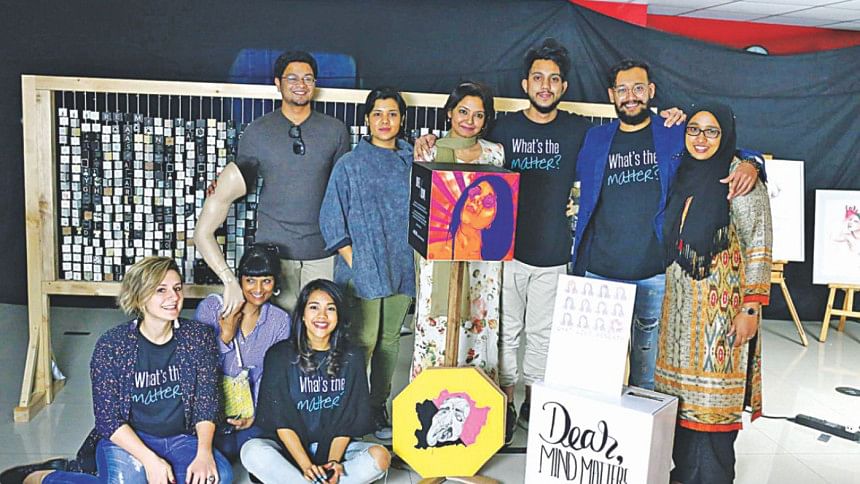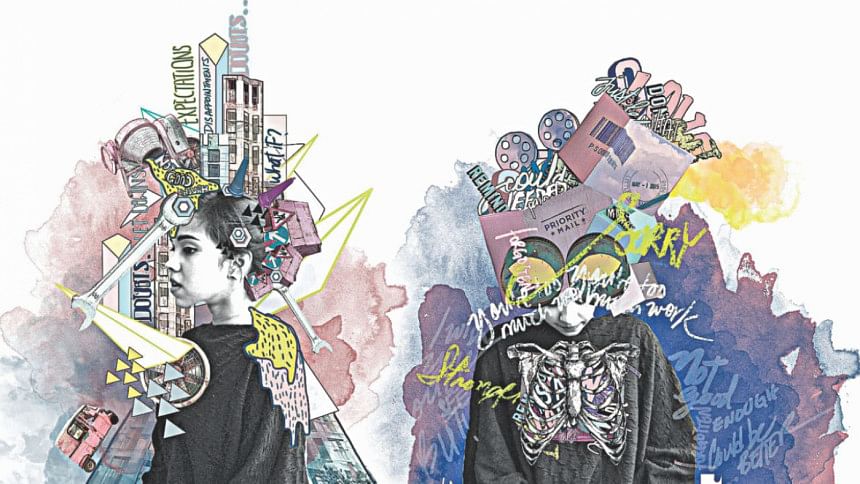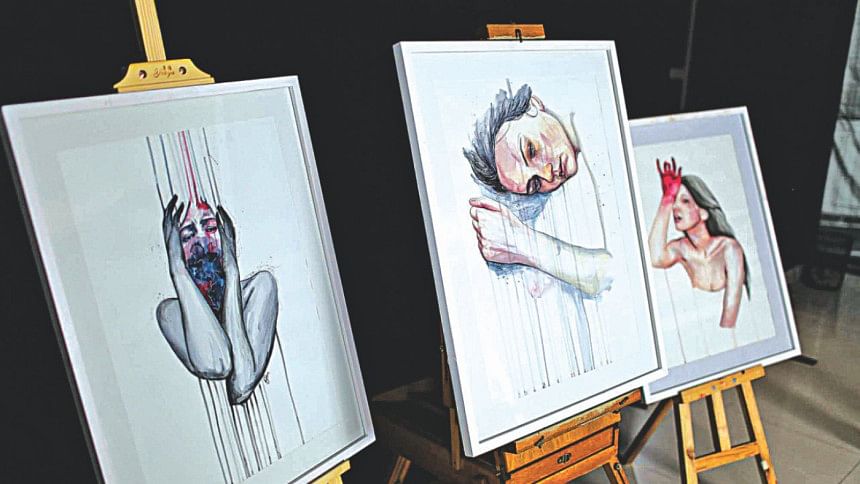MINDMATTERS: Raising Awareness About Mental Health

To this day, the Bangladeshi community struggles with the stigma of mental health disorders and treatment. While people openly seek professional treatment for a heart disease or a broken limb, their decision to seek help for their mental disorders is often kept secret, or completely ignored, owing entirely to the widespread devaluing in our community against people with mental health illnesses and the lack of understanding about mental health. Recognising this lack of mental healthcare facilities and the stigma surrounding mental health in Bangladesh, Sarah Fardeen, a psychotherapist with her own practice, and a lecturer of psychology at North South University, started MindMatters in July 2016. The mission of MindMatters is to spread knowledge about mental health and mental healthcare through campaigns to improve services, raise awareness, and promote understanding.
When asked what was her inspiration behind starting MindMatters, Fardeen says that she has always wanted to do something to address the stigma surrounding mental health, but there was one reason that encouraged her to take that next step: her students. "My students frequently said to me that the people around them would not take their mental health issues seriously at all, and that their parents would not allow them to go to counselors," says Fardeen, adding that the pressures of growing up can be overwhelming for young people and their psychological health should be taken seriously.

Fardeen further explains that sadly, parents can be a harbor for stigma, and that they have a key role in developing their children's self-esteem. "Families are our first port of social support. So, even things like comparing your children with others can be more damaging than one realizes."
Addressing the need for educating people about mental health, Mahi Nur Saif, the program manager of MindMatters and a student of North South University, explains, "I think we need to realize that emotional wounds and the way we speak can affect the way other people think and speak, and this is as important as our physical well-being."
When people go through periods where their feelings and behaviours start to affect their life at home, school, or with friends in a negative way, they feel uncomfortable and ashamed to talk about it. This is something Fardeen hopes to change with MindMatters. "Our society widely shuns the topic of mental health, and people naturally want to blend in, so they avoid talking about it," explains Fardeen.
So, with MindMatters, Fardeen wants to raise awareness about mental health and address people with things that they usually like and are involved in, such as sports, arts, pop cultural entertainment, and food and nutrition.
The first program of this initiative was "Exploring MindMatters," a two-day art exhibition held in January this year, depicting common mental health disorders in visual form. The curator of this event was Katerina Don, who had previously been in charge of several exhibitions and catalogue publications, and who Fardeen met through a classmate.
The program was also a platform for hosting free workshops on mental healthcare and social support, and providing resources for counseling centers from all around Dhaka. Professionals in the mental health field led these workshops. Different artists, illustrators, comic creators, filmmakers, advertisers and visual designers took part in the exhibition. They were: Saria Saguaro, Kazi Istela Imam, Sayeef Mahmud, Tanvir Ahmed, Nuhash Humayun, Mahenaz Chowdhury, Saiq'a Chowdhury, Tabassum Islam Tanni, Maleena Gomez, and Liza Hasan. To prepare and coach these artists prior to the exhibition, Fardeen arranged a presentation on common mental health issues such as suicide, split personality, dissociative identity disorder, schizophrenia, anxiety, and depression, among others. The artists used the knowledge they gained from the presentation to create something of their own based on these issues.

Tanvir Ahmed, a management executive by profession and artist by passion, created a zine for the exhibition. He explored social anxiety, and the fear of being judged and not accepted through the main character of the zine. "I find it intriguing how quickly we jump to conclusions about the "quiet ones" in social settings. I've done the same almost subconsciously, because I was never aware of the perspective that maybe they are not quiet by choice," explains Tanvir. Kazi Istela Imam, a graphic designer, created a video installation to address her inner critic and issues of anxiety and her ways of dealing with them through mind control and meditation.
The mission behind this exhibition of MindMatters was to instill a spirit of hope and to show that creating art gives people a platform to alleviate the pain of their reality and deal with their negative emotions.

Other activities of MindMatters include creative, inclusive campaigns and forums so people can start conversations about mental health, articles, videos and online tools to educate people about the root causes of why mental health is important, and a platform for people to share their own experiences of psychological struggles through different creative modes of expression such as poetry, short stories, photo projects, paintings, music, and open letters, among others. The MindMatters team also looks forward to hosting another art exhibition in the future.
Although MindMatters is a commendable step towards raising awareness about mental health, running an initiative of this nature can be challenging. Fardeen asserts, "The hardest part is that most people do not cooperate and still don't want to have anything to do with mental health." However, the positivity is not lost. "I think this is a start. People have come up to me and said that our event had changed their perception about mental health, and that the artworks spoke to them," says Fardeen.
Stigma is still not gone. We are often quick to ostracise and make someone feel insignificant just because his or her behaviour is a little different than the rest of us. We tend to forget that these people we shun may remember that one single event for the rest of their lives. Mental illnesses and the stigma surrounding them are challenges we need to tackle together.

 For all latest news, follow The Daily Star's Google News channel.
For all latest news, follow The Daily Star's Google News channel. 



Comments